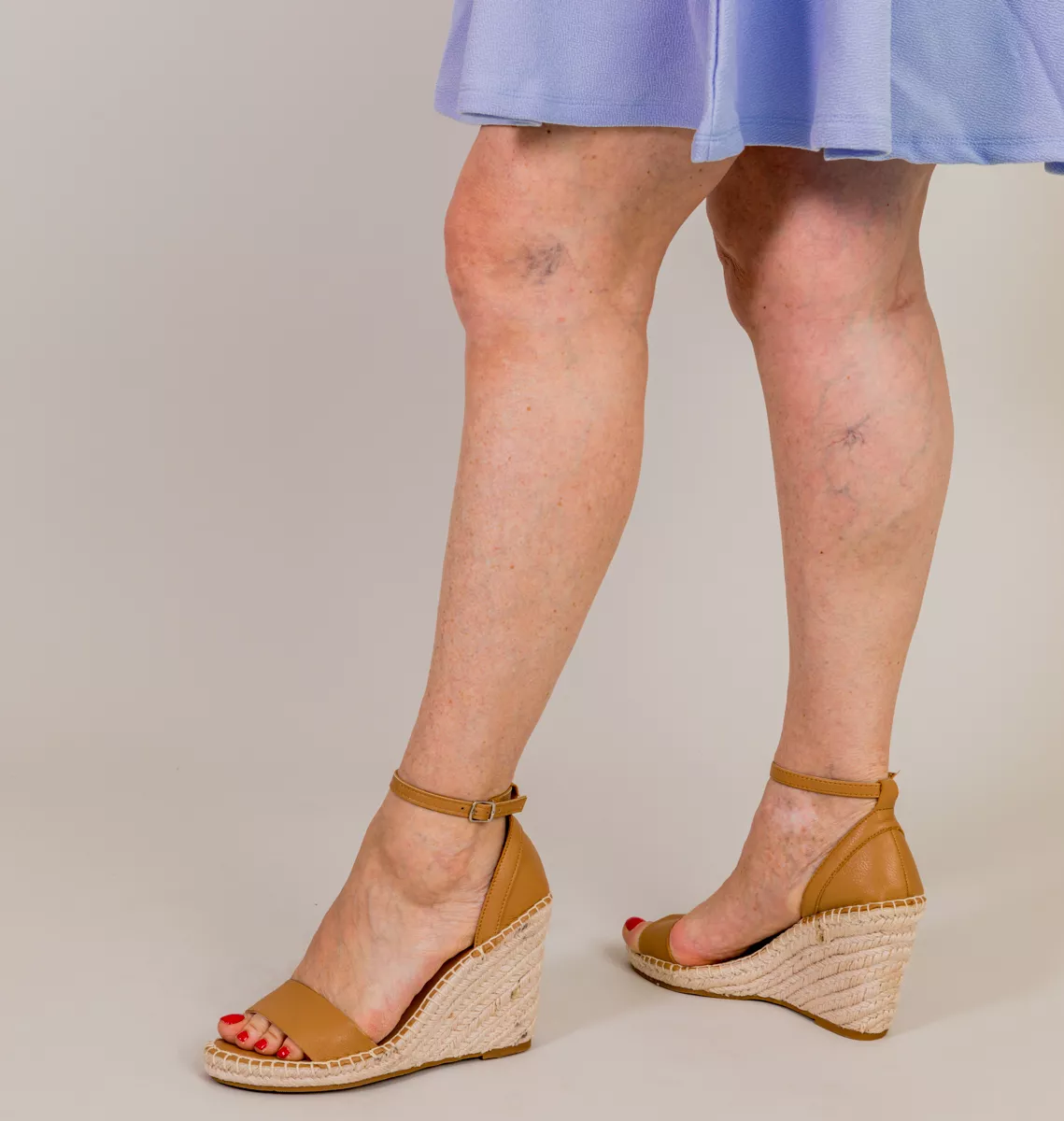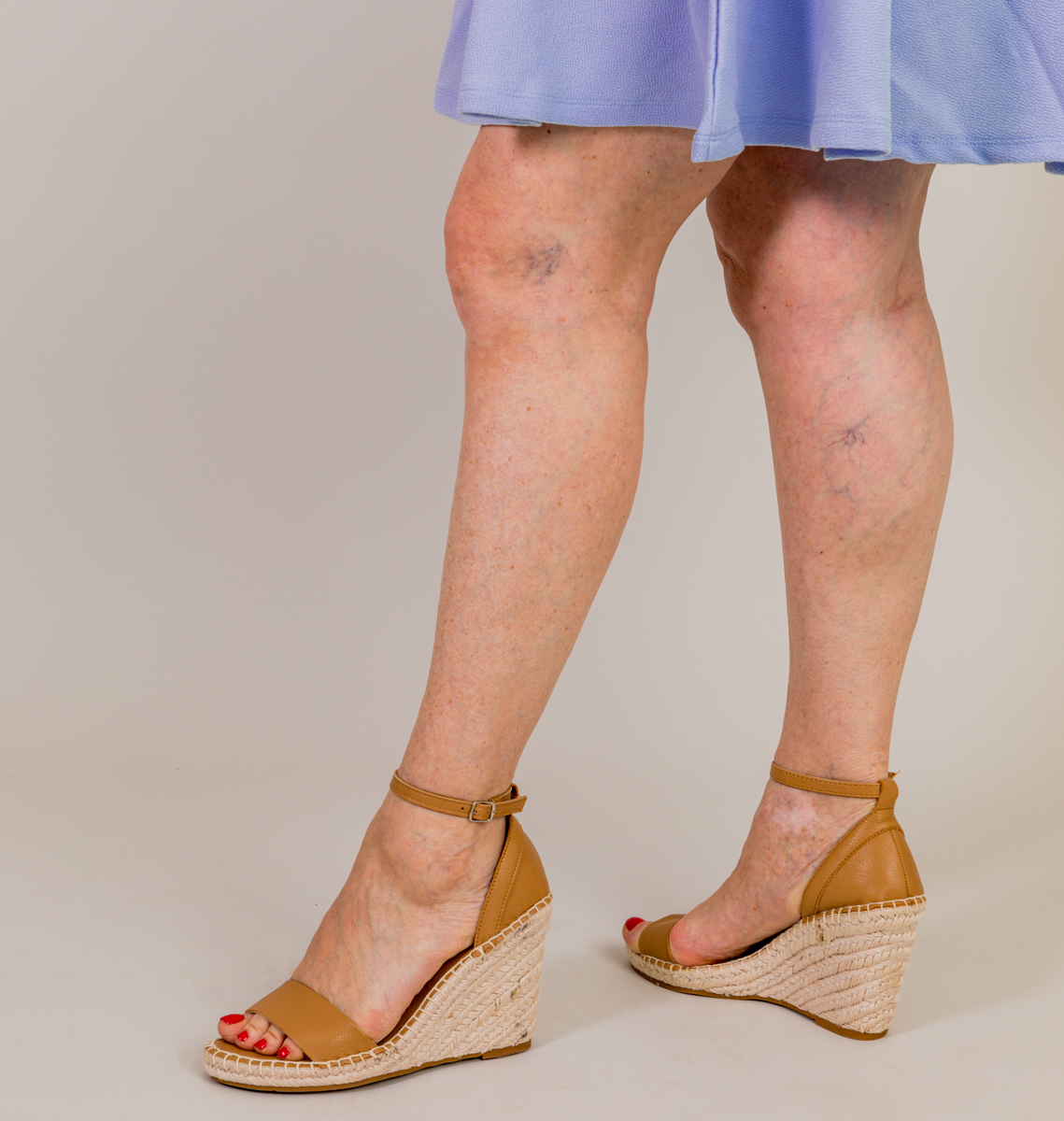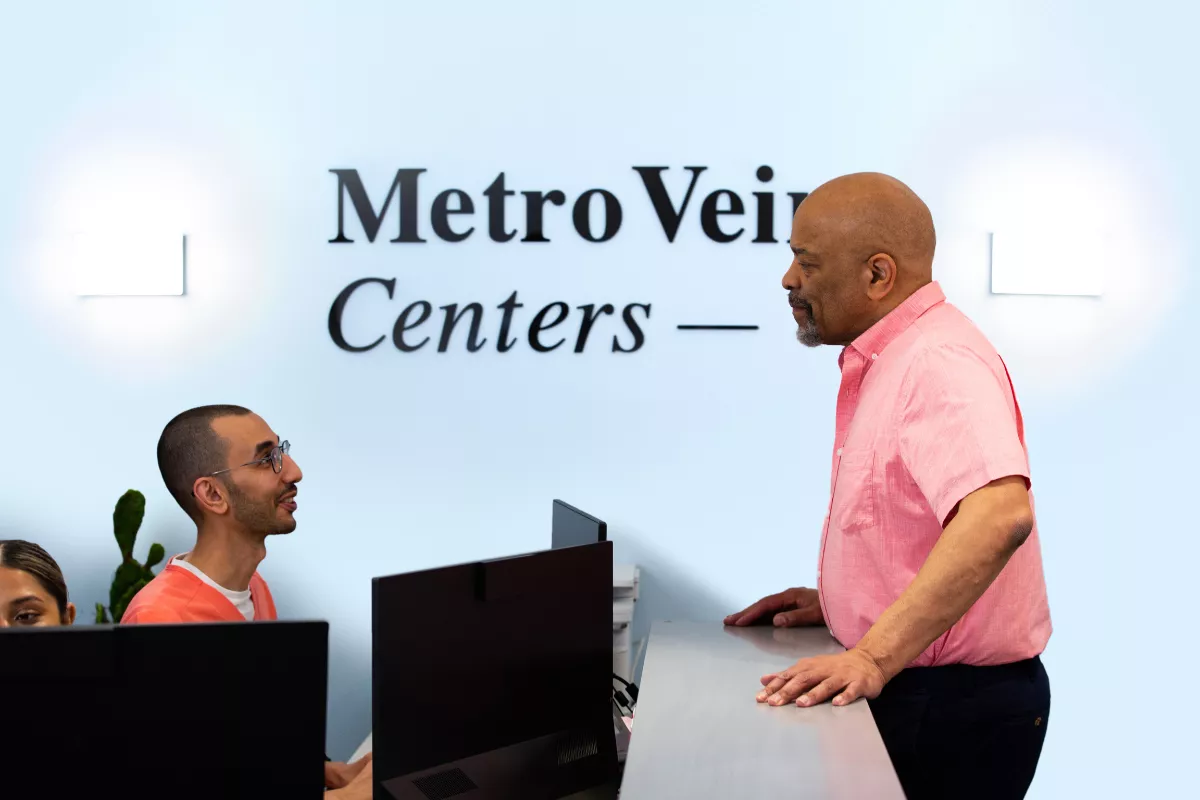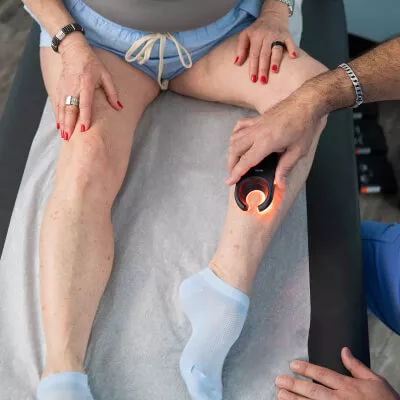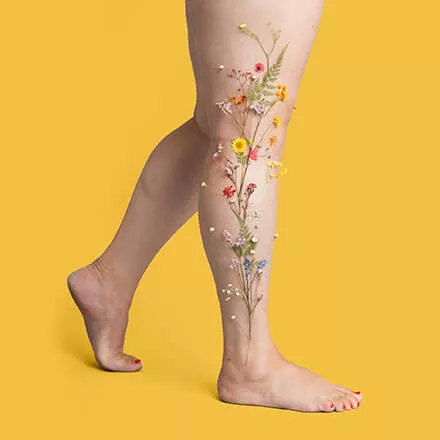Does crossing your legs cause varicose veins? Do only women get vein disease? And will varicose veins disappear on their own? There are so many myths surrounding varicose veins causes and cures, so we thought it high time to dispel all these old tales.
During patient consultations, our board-certified vein doctors hear some of these varicose vein myths again and again. We figured that this little vein fact sheet is a helpful way to dispel some of these so-called facts.
In this article, we'll confirm (or deny) 10 popular myths about varicose veins, their causes, and their cures.
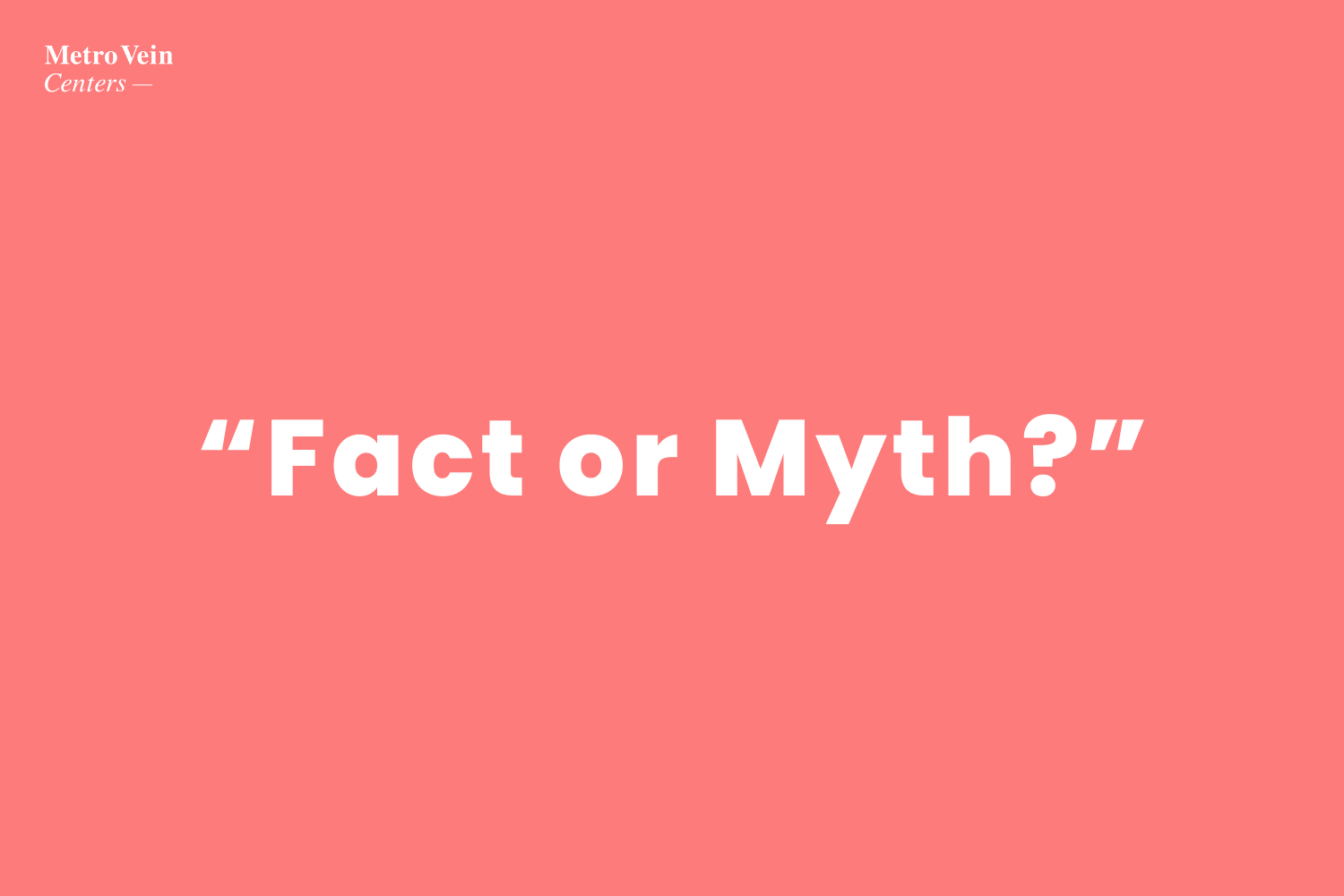
Myth #1: Everyone gets varicose veins as they grow older.
While people who are older are more likely to develop varicose veins, it's a myth that everyone gets them at some point. So what causes varicose veins?
A few factors can indicate who might be afflicted, such as:
-Weight
-Health
-Gender
-Genes
-Occupation
If you stand all day for your job--or are sedentary every day of the week--your risk for vein disease may rise. And even if you're healthy and exercise, having a family history of vein disease could mean you're likely to have varicose veins. But for sure, not everyone gets them. Around 30% of the population seems to develop varicose veins at some point.
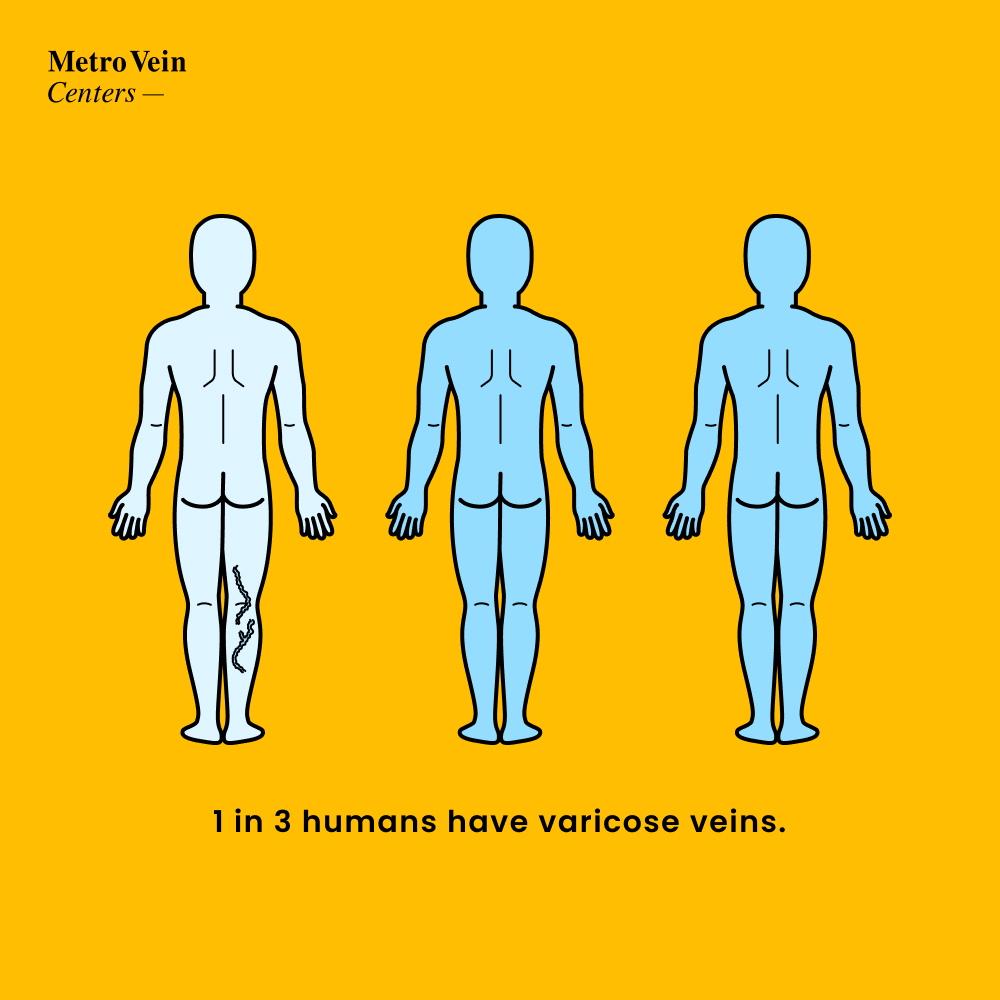
Myth #2: Only women get varicose veins.
Woman appear to be twice as likely to get varicose veins than men...but there's a catch. While women have a 40% likelihood of developing varicose veins in their lifetimes, compared to just 20% of men, this figure needs to be explained.
First, men are less likely to see colored, twisted veins on the legs due to leg hair. Second, men are less likely to see a vein specialist, often (incorrectly) assuming there's nothing to worry about until there's pain.
This unfortunately puts people at greater risk, because the sooner you have your veins examined by a professional vein doctor, the sooner you can understand your personal risk factors.
Myth #3: Varicose veins are just cosmetic.
Varicose veins are not cosmetic, and can present a real danger before you feel them or see them. While spider veins are often more cosmetic, varicose veins can be superficial (on the surface) or completely hidden from view.
They can cause pain or be painless. They can be small or large. And varicose veins can be no threat, or a large threat to your health. We often use a painless ultrasound machine to see what the naked eye can't, and determine the best next steps.
So, are varicose veins dangerous? They can be, and the best way to know your risk is to make an appointment at Metro Vein Centers. Only our board-certified vein doctors around the country can determine your specific risk level.
Myth #4: You can get varicose veins from wearing high heels.
People have been told for years that high heels cause damage to the legs. While this can certainly happen--since high heels put pressure on specific parts of the feet and legs--this pressure doesn't directly impact or create varicose veins. High heels can definitely cause swelling, back pain, and hammertoes. But varicose veins? Nope.
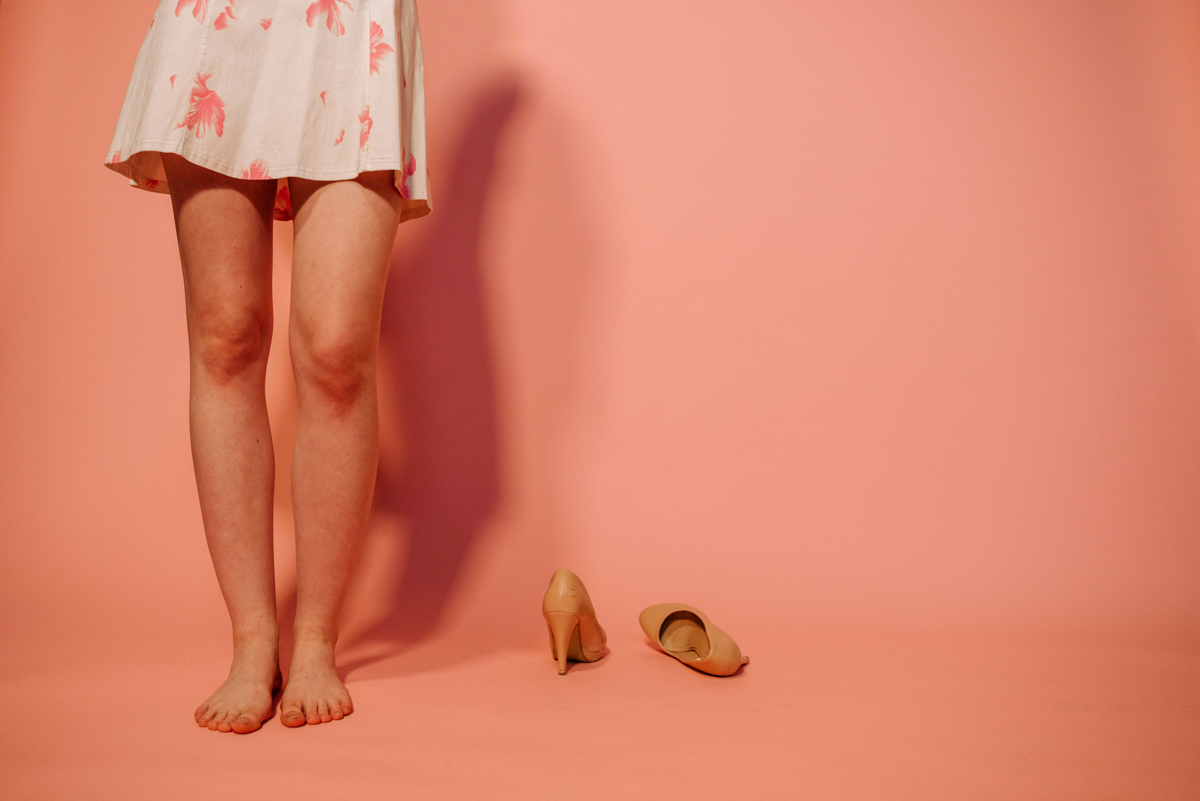
Myth #5: Pregnancy causes varicose veins.
While pregnancy and varicose veins are correlated, being pregnant doesn't cause varicose veins. Because of the increased pressure pregnancy brings upon the pelvis and legs, blood flow can be impacted and thus veins can worsen.
Visible veins often disappear a few months after pregnancy, but sometimes need to be looked at by a vein specialist. So while pregnancy can exacerbate varicose veins, it doesn't cause them.
Myth #6: Varicose veins go away on their own.
Even if you exercise, eat right, take supplements, and do everything to make your legs look better, they just don't really go away.
Varicose veins won't go away on their own, nor with a change in diet or lifestyle.

Can you get rid of varicose veins naturally? Unfortunately, there are no scientific studies showing any correlation between essential oils, herbal extracts, or creams that make problem veins go away. The only way to make sure your legs are healthy and safe is to see a vein specialist who can understand your vein health from the inside out.
Myth #7: Stress causes varicose veins, massages can cure them.
No and no! While stress and veins can be related, stress doesn't cause varicose veins. It's true that long-lasting stress is related to high blood pressure--and high blood pressure restricts proper blood flow--but it's not the cause of your varicose veins.
And while herbal extracts, sunscreen, and massage may alleviate certain vein-related issues (or even the appearance of varicose veins), these are only temporary hacks, not solutions.
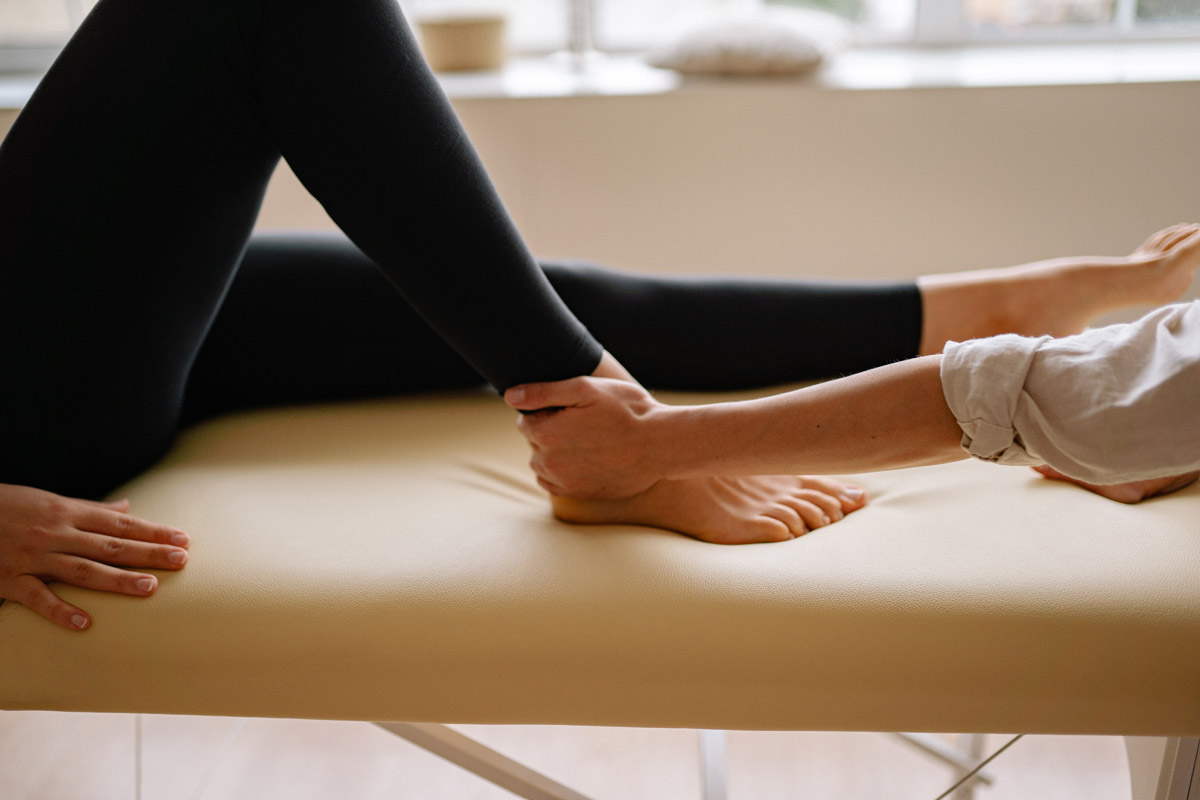
Myth #8: Varicose vein treatment is super painful
Vein treatment options have come a long, long way since the old days, and these days there are incredible new technologies. In fact, vein stripping is not practiced at any of our facilities.
Instead, our board-certified vascular surgeons at Metro Vein Centers make use of the latest proven vein treatment options, including lasers, ultrasounds, foams, and more.
In turn, our clients get to see their legs transformed--and they're healthier, too. The best part? 99% of our patients tell us how painless their procedures were! Clients can even go back to work the next day, and all treatments are done right in one of our offices. It's that easy--and with very little pain.
Myth #9: Varicose veins are just bigger spider veins.
This one's not true at all. While varicose veins are typically larger than spider veins, the main difference between varicose and spider veins is one of health and safety. Spider veins are rarely dangerous on their own, while large, bulging, twisted varicose veins can be a health threat.
Spider veins are more cosmetic in appearance. They show up as web-like veins on the surface of your legs, but are generally not dangerous. Varicose veins cause achy and restless legs, may be raised and painful to the touch, and carry the threat of possible blood clots (read the article here) if left untreated.
And finally, everyone's favorite varicose vein myth...
Myth #10: Crossing your legs causes varicose veins.
Crossing your legs does not cause varicose veins! This is a myth told time and time again, but it just isn't true. With varicose veins, damaged valves in your vein start to leak fluid in the wrong direction. Blood then pools in the veins, cause them to enlarge and form varicose veins.
While proper circulation is key in having positive leg health, constriction and pressure can make veins worse. Crossing your legs results in more pressure in your legs and could therefore make circulation worse, but it doesn't cause varicose veins.
Does Crossing Your Legs Cause Varicose Veins or Spider Veins?
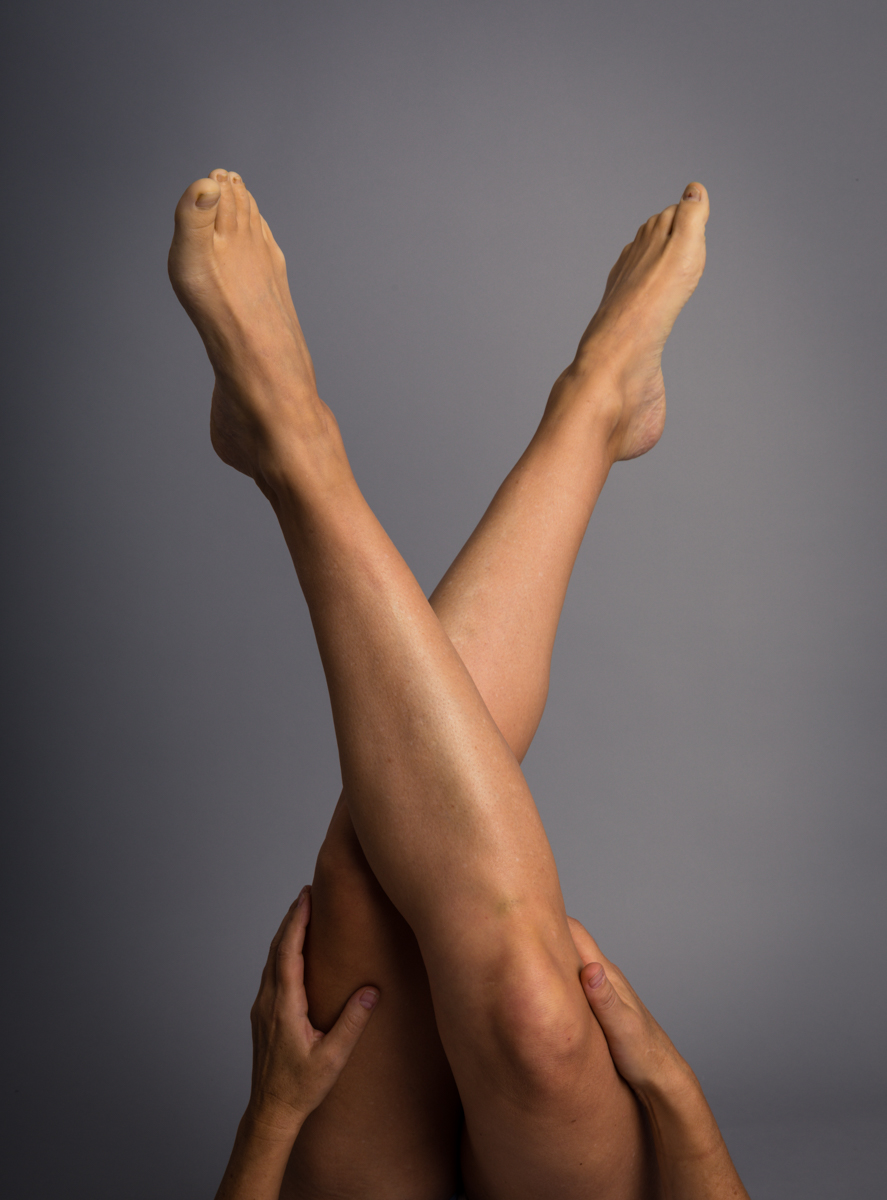
So is crossing your legs bad for you? Not really. Does crossing your legs cause varicose veins? No. But if you keep your legs crossed while sitting at your computer for 12 hours a day, 5 days a week, then you may want to change this bad, sedentary habit. All in all occasionally crossing your legs will not cause varicose veins in the least.
The Truth About Varicose Veins
There's a lot of false information out there about what causes varicose veins, who gets them, and how to cure them, but we hope this article has helped dispel a lot of these myths for good. More questions? Make an appointment at one of our Metro Vein Centers offices in Michigan, New Jersey, Connecticut, Texas, and New York.
We'll be happy to help you understand your personal vein health needs and risks at your consultation, where you'll meet one-on-one with one of our board-certified vein doctors. And that's the truth!
Dr. Ha of Metro Vein Centers during a consult in New York City
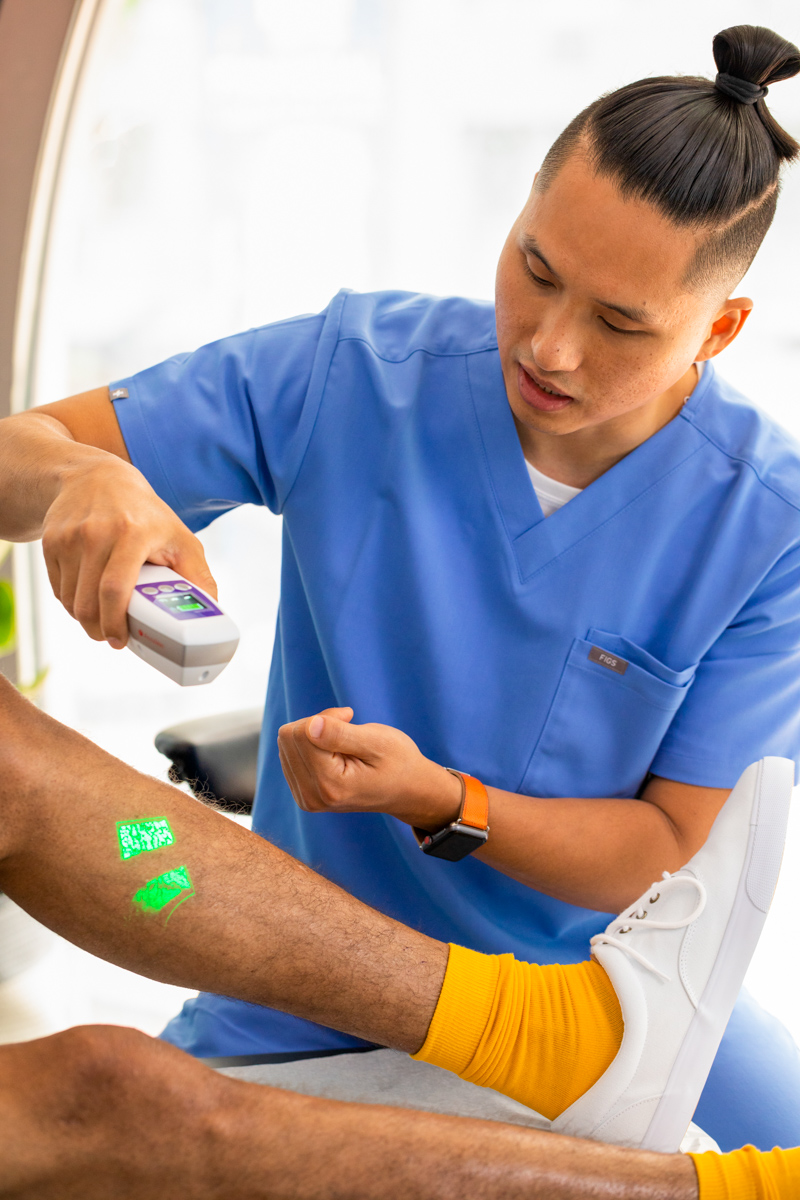
Learn more here about vein health, or call us 7 days a week: 888-660-3494.
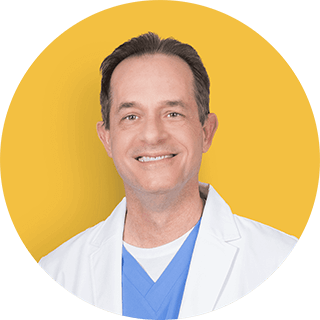
Dr. Philip LoPresti
Meet Dr. Philip LoPresti DO, DABVLM, FACS, a board-certified vein specialist and surgeon with over 20 years of experience. Schedule an appointment with him in Queens, NY today.
Meet Dr. Philip LoPresti
Trusted insight from the nationally accredited, board-certified vein doctors at Metro Vein Centers.


